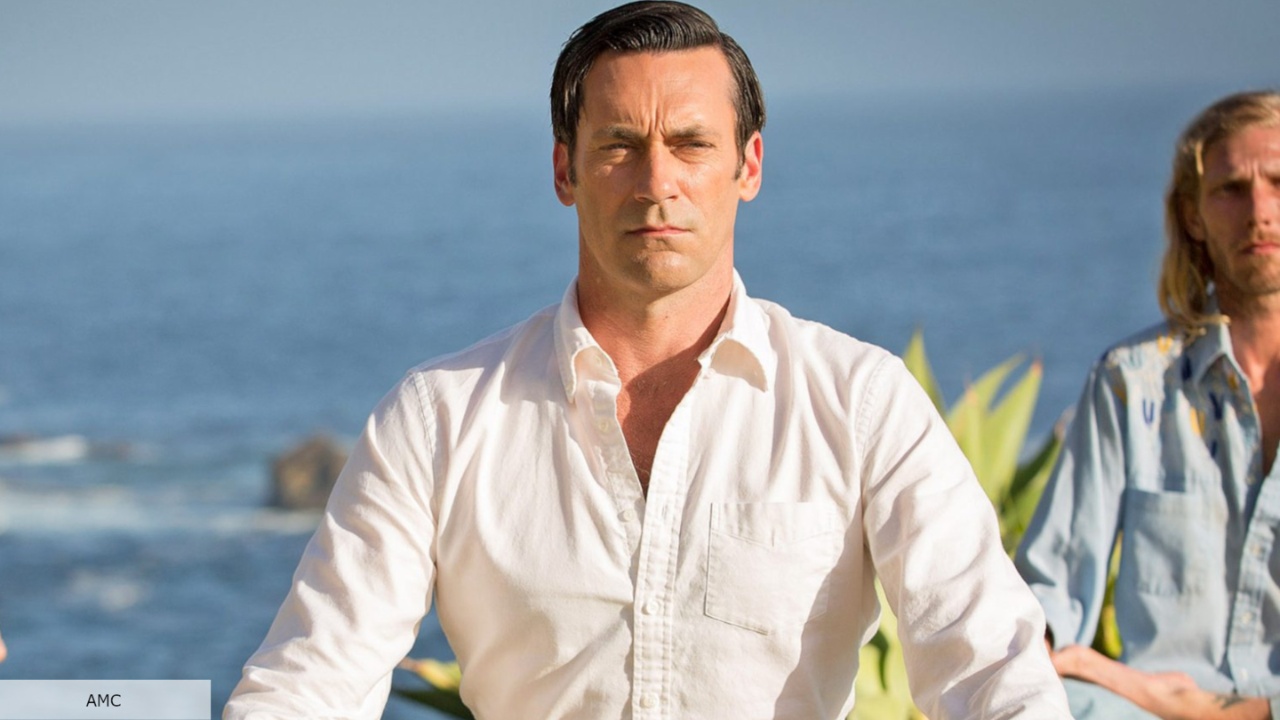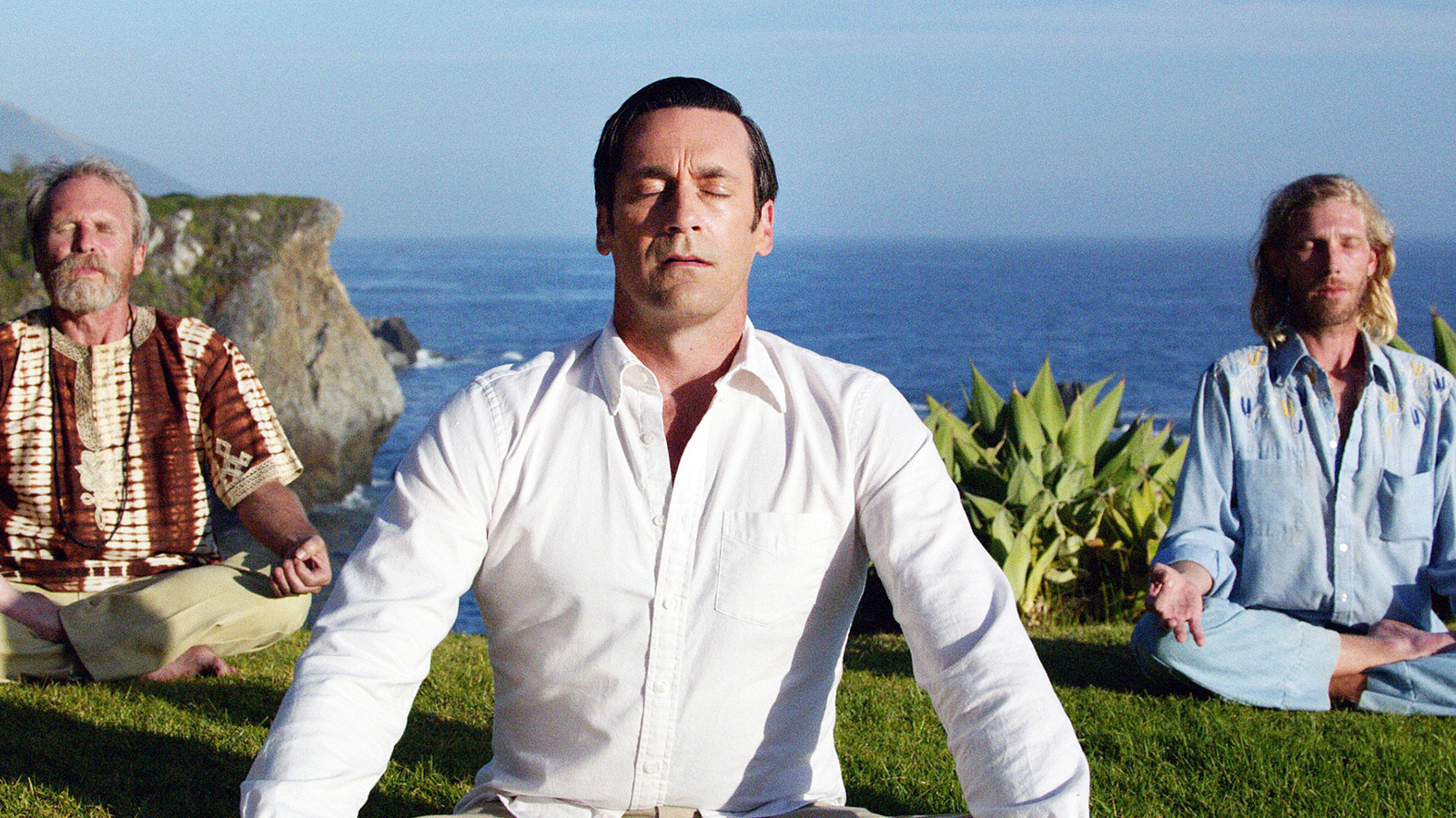Ending a beloved television show is notoriously difficult, often resulting in finales that are vague, cliched, or outright disappointing. Unlike other series, Mad Men delivers a finale that is both unexpected and satisfying, neatly wrapping up the story without leaving loose ends. The episode, titled “Person to Person,” balances character resolution with thoughtful thematic closure.
Don Draper Hits Rock Bottom and Finds Clarity Through Retreat and Meditation
The finale begins with Don Draper at an oceanside retreat in California, having driven across the country after abruptly leaving a company meeting. Abandoned by his niece, Stephanie, Don finds himself at rock bottom. In a rare moment of vulnerability, he calls Peggy to confess his failures in life, including infidelity and dishonesty, but he declines her invitation to return to McCann Erickson, signaling his disinterest in resuming his old life.

At the retreat, Don participates in a group therapy session where he connects with a man named Leonard, whose metaphor about being ignored resonates deeply with him. In the final moments, Don is transformed; he meditates on the beach with others, achieving a calm, centered state. His subtle smile suggests a renewed sense of clarity and inspiration.
Don Draper’s Enlightenment and Creativity Culminate in the Iconic Hilltop Coca-Cola Advertisement
Don’s smile is tied to the creation of the famous Hilltop Coca-Cola advertisement, which became one of the most influential ads in history. Released in 1971, the ad featured a diverse, carefree group of young people singing about peace and love. Its cultural significance is tied to the counterculture of the 1960s, offering a message of harmony during a time of social unrest and political tension.
The ending signifies Don’s understanding of the 1960s counterculture, which he previously criticized. He grasps its appeal and the generational changes it represents, reconciling his personal failures with a broader cultural awareness. While he has grown introspectively, he channels this knowledge into creating something meaningful within the capitalist framework of advertising.
Ultimately, the finale portrays a dual interpretation: Don achieves personal enlightenment while simultaneously exploiting it to sell Coke. The ending reflects both triumph and cynicism, highlighting his ability to turn insight into commercial success. Don Draper emerges as a complex figure, resilient, perceptive, and perpetually ahead in the ad game, reminding viewers that happiness is fleeting and often commodified.



